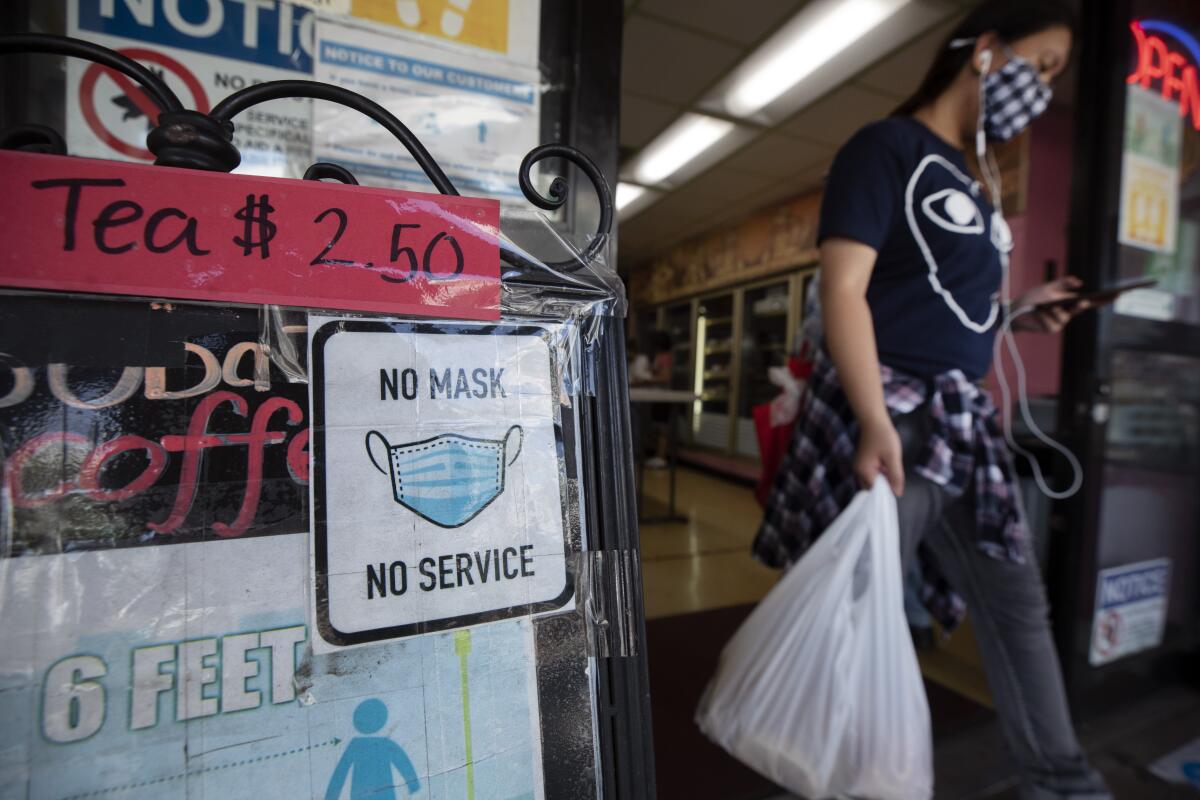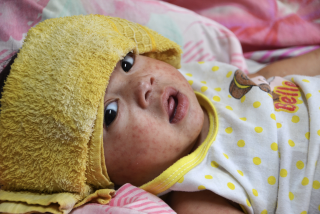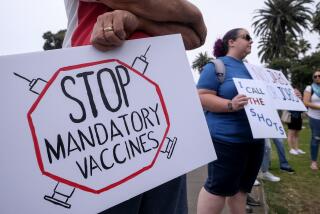Op-Ed: Why face mask mandates for all should be back on the table

- Share via
Last week, nearly every state in the U.S. experienced an increase in daily coronavirus cases. Driven by the Delta variant, this rise and an accompanying increase in hospitalizations have sparked a debate about returning to indoor mask mandates for all, regardless of vaccination status.
Los Angeles County announced Thursday that face masks will be required indoors for both vaccinated and unvaccinated people, and the state of Hawaii has maintained a similar requirement amid rising cases. However, officials in both New York City and Chicago recently rejected the idea of a new universal indoor mask mandate.
Are mask requirements again necessary in the U.S.? Our research shows why the answer is yes in many places: The unvaccinated are least likely to wear masks.
We could avoid mask mandates if everyone who is eligible gets vaccinated. Nearly half of the U.S. population is fully vaccinated, and almost 70% of adults (and nearly 90% of those 65 and up) have received at least one dose. But these vaccination rates vary substantially by county. Federal and local governments must continue to find creative ways to encourage — or require — vaccination. France recently introduced new vaccination requirements, and despite some controversy, a rush for vaccines ensued.
Until vaccination rates increase, it might seem that the simplest solution is to require those who are unvaccinated to wear masks, and several states have adopted this policy. Masks not only help prevent those infected from spreading the virus, they also offer protection to those wearing the mask. But that bifurcated approach doesn’t work well if unvaccinated individuals are unlikely to follow mask requirements when the vaccinated no longer need to wear masks. The unvaccinated are also the least concerned about the Delta variant.
To understand the mask-wearing behaviors of the unvaccinated population, we surveyed a nationally representative sample of 939 adults in the U.S. from July 11 to July 14. We reminded respondents that masks have been used to limit the spread of the coronavirus and we then asked if they would wear a mask in a variety of settings where unvaccinated people were asked to do so: at a friend’s party, at a grocery store, at the post office and at a job. As a follow-up, we asked each person to tell us whether he or she has received a COVID-19 vaccine. We are thus able to analyze the mask-wearing habits of those who have and have not been vaccinated.
The results are striking: In each scenario, respondents who have not been vaccinated were more likely to say they would not wear a mask than those who have received at least one vaccination shot. Nearly half of the unvaccinated say they would not wear a mask at a party (49%) or a grocery store (48%), despite explicit requests for them to do so.
Mask refusal rates among the unvaccinated were slightly less when we asked about the post office (43%) and work (37%) but still greater than among vaccinated respondents. Further, the survey showed that about 15% of all adults are both unvaccinated and unwilling to wear masks when asked to in public. This is a significant population, which could enable the spread of dangerous new mutations like the Delta variant.
Given mask resistance, a universal requirement may be the only effective approach. When everyone is required to wear a mask, businesses, government offices and employers do not need to worry about vaccine verification and unvaccinated people cannot easily avoid masking.
It may feel unfair that individuals shunning the vaccine and masks could cause us all to have to mask up again. But until vaccinations are more broadly required, policies like the federal rule that everyone wear masks on planes, trains and buses is the most viable option. More than 608,000 people have died from COVID-19 in the United States. To prevent more illnesses and deaths, more counties will again need to require everyone to mask up.
Peter K. Enns is co-founder of Reality Check Insights and professor of government and director of the Cornell Center for Social Sciences at Cornell University. @pete_enns. Jake Rothschild is a senior data scientist at Reality Check Insights. @jake_rothschild
More to Read
A cure for the common opinion
Get thought-provoking perspectives with our weekly newsletter.
You may occasionally receive promotional content from the Los Angeles Times.










